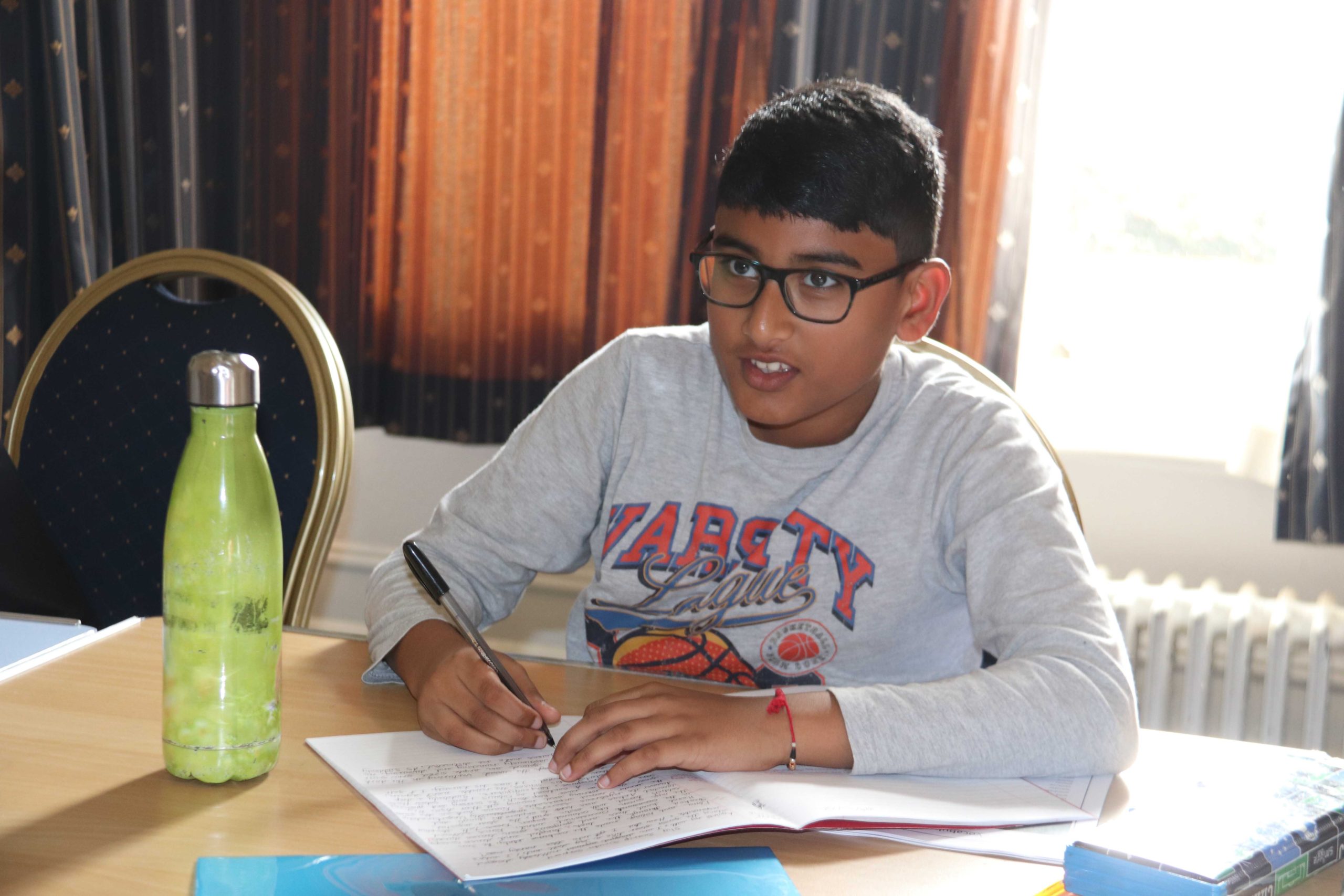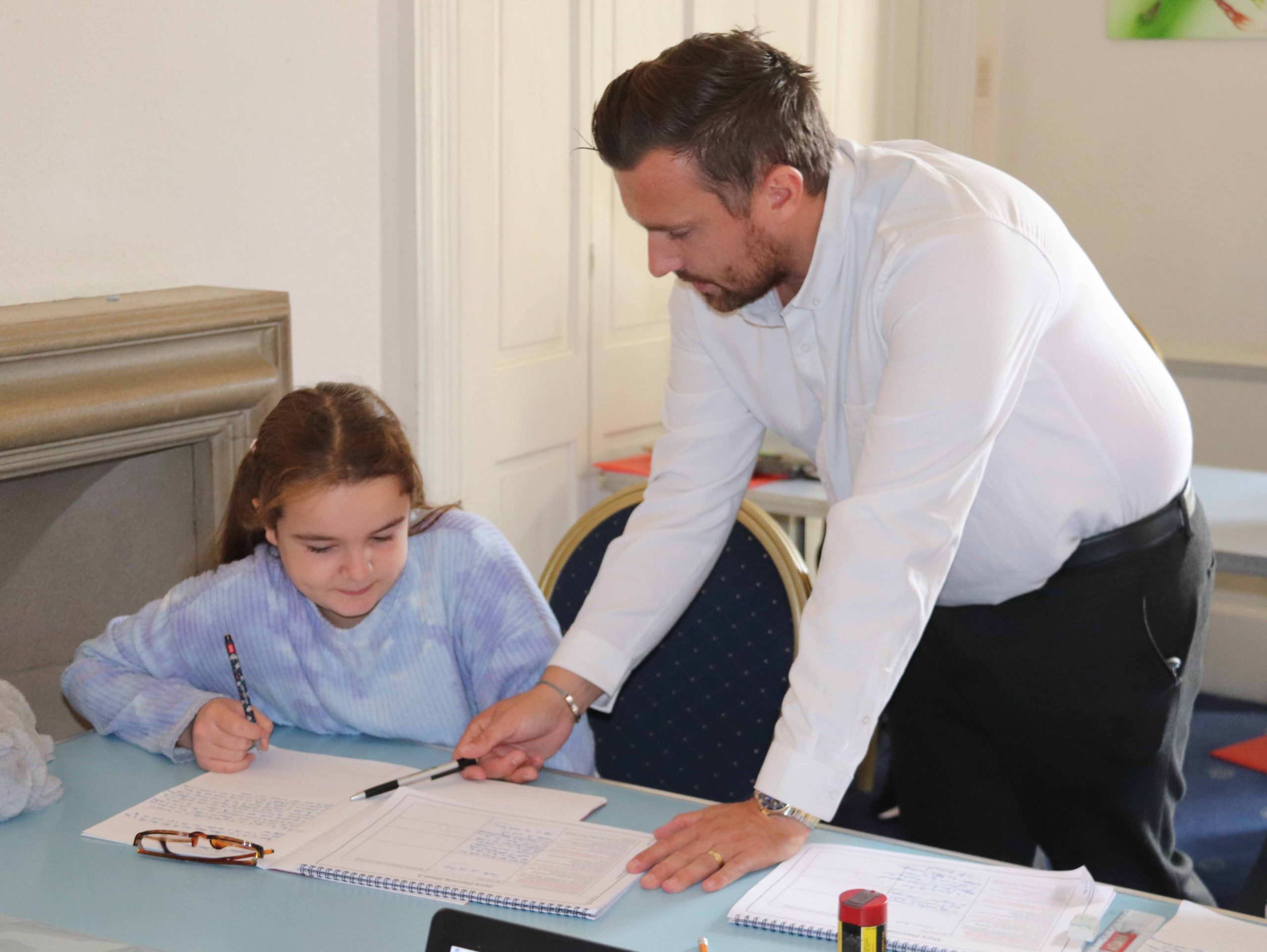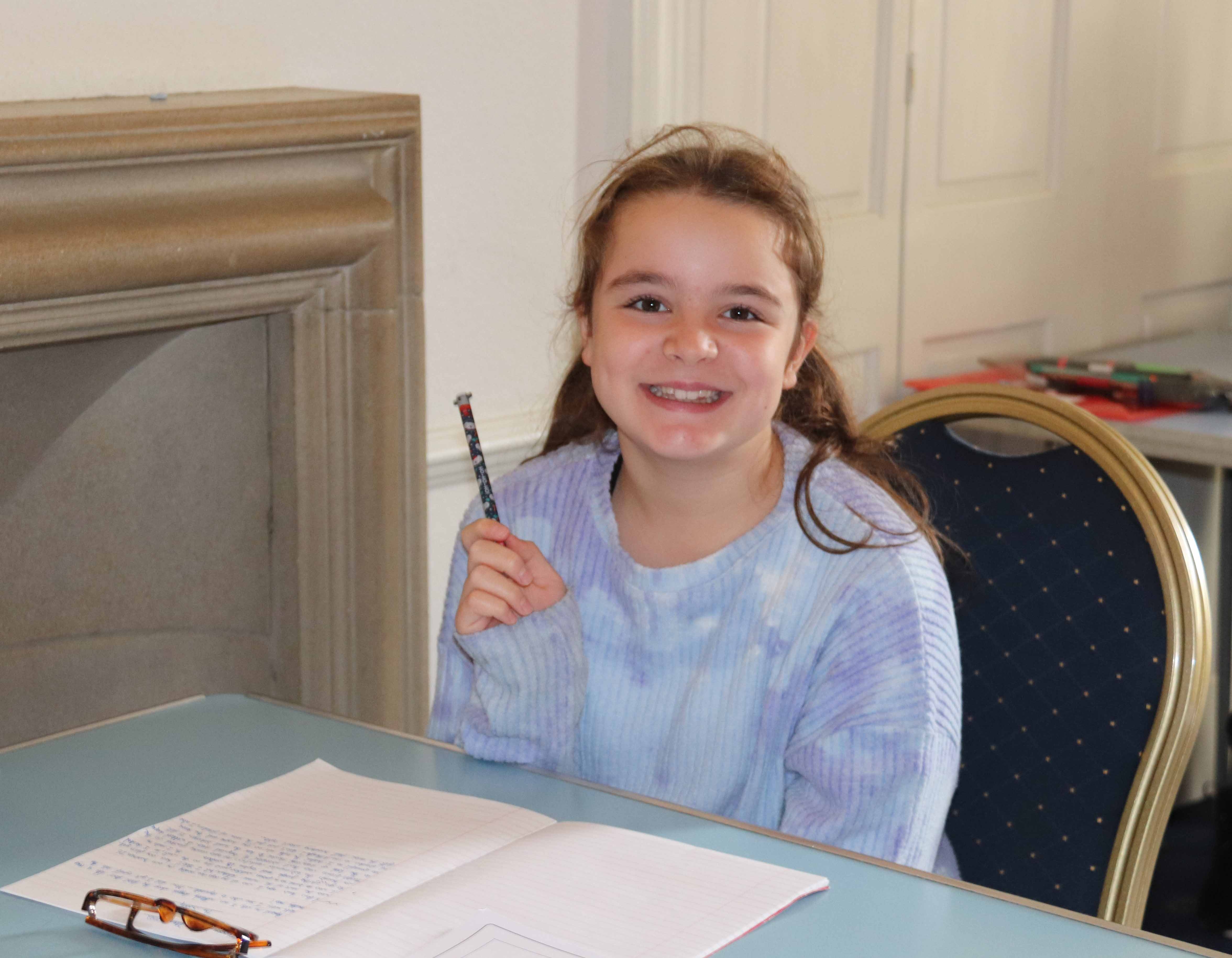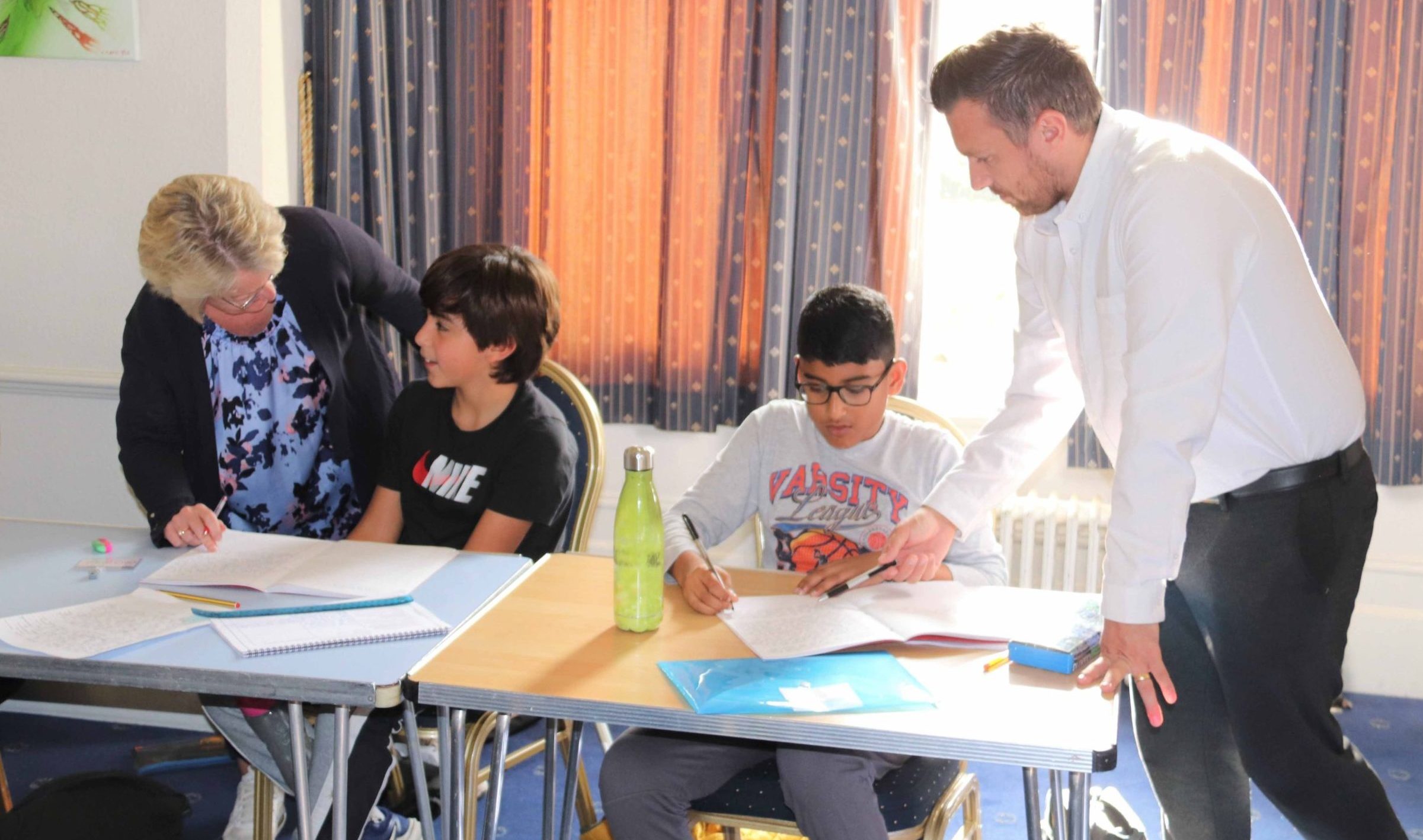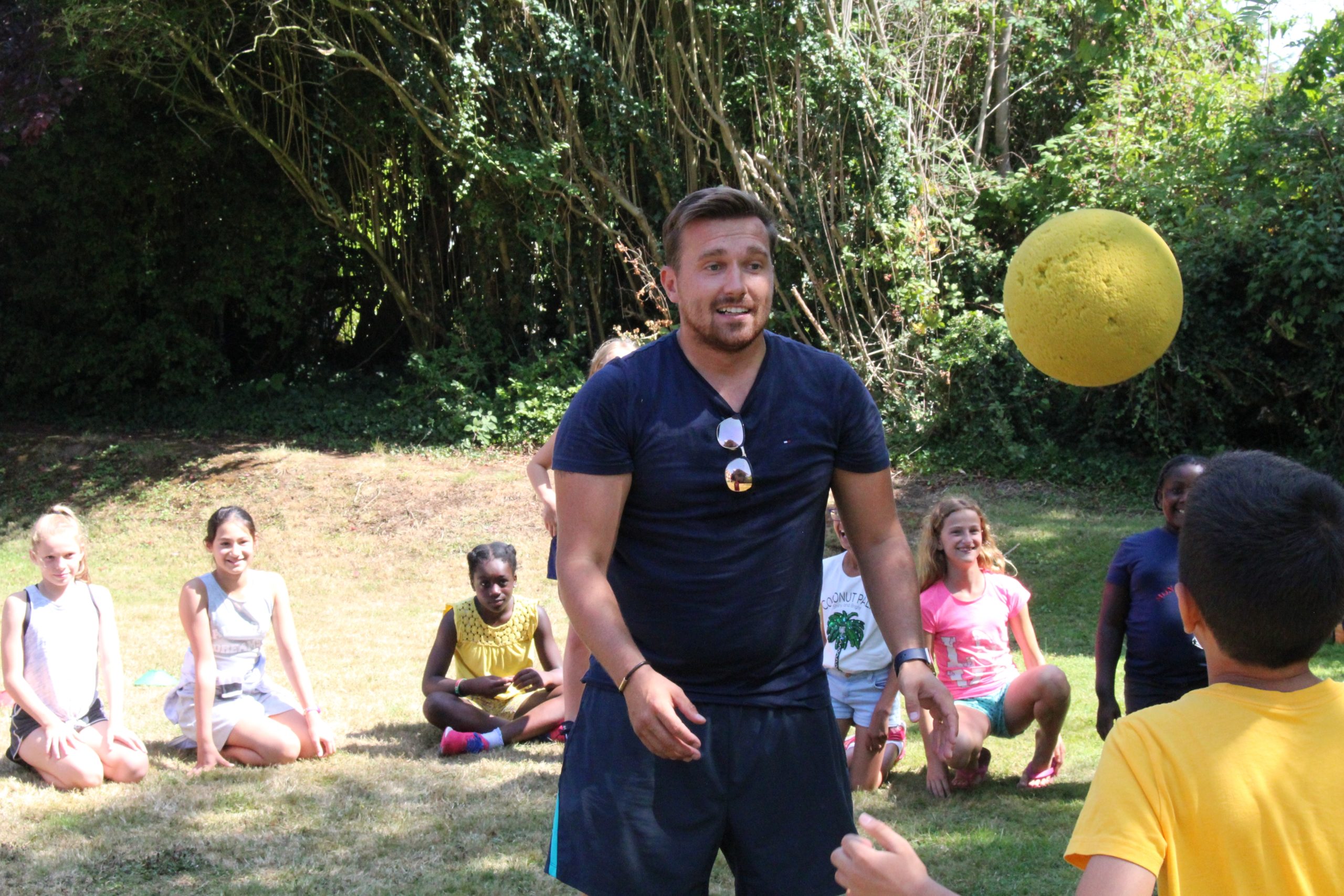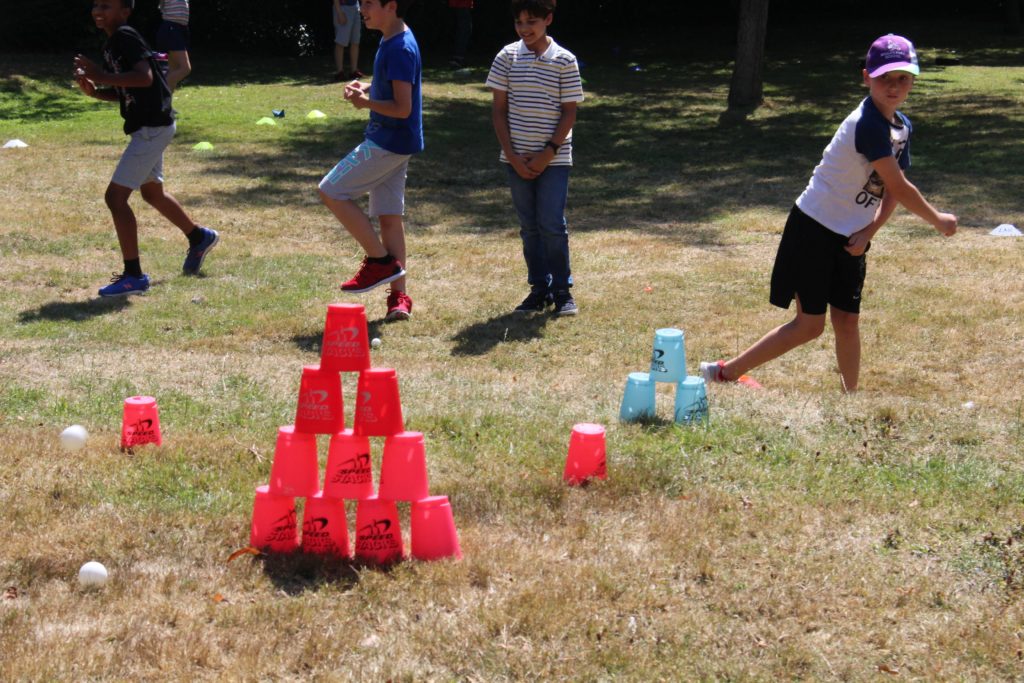(for 11+, 13+ and years 6-8)
Advanced writing skills suitable for competent and able writers
Course dates: (4 days)
26th – 29th October 2026
Now taking bookings
Is the course suitable for your child?
This follow up course has been designed for students who are working towards refining existing (competent) writing skills and further enhancing their ability to write fluently and creatively, particularly in timed examination situations such as those faced in highly competitive selective school 11+ and Common Entrance (13+) examinations. The course and booklet are also suitable for students in KS3 (years 7 to 8) who are not taking external examinations, but who wish to improve their writing skills to boost achievement at school ahead of the important GCSE years and for those who want to improve their writing purely for the love of it.
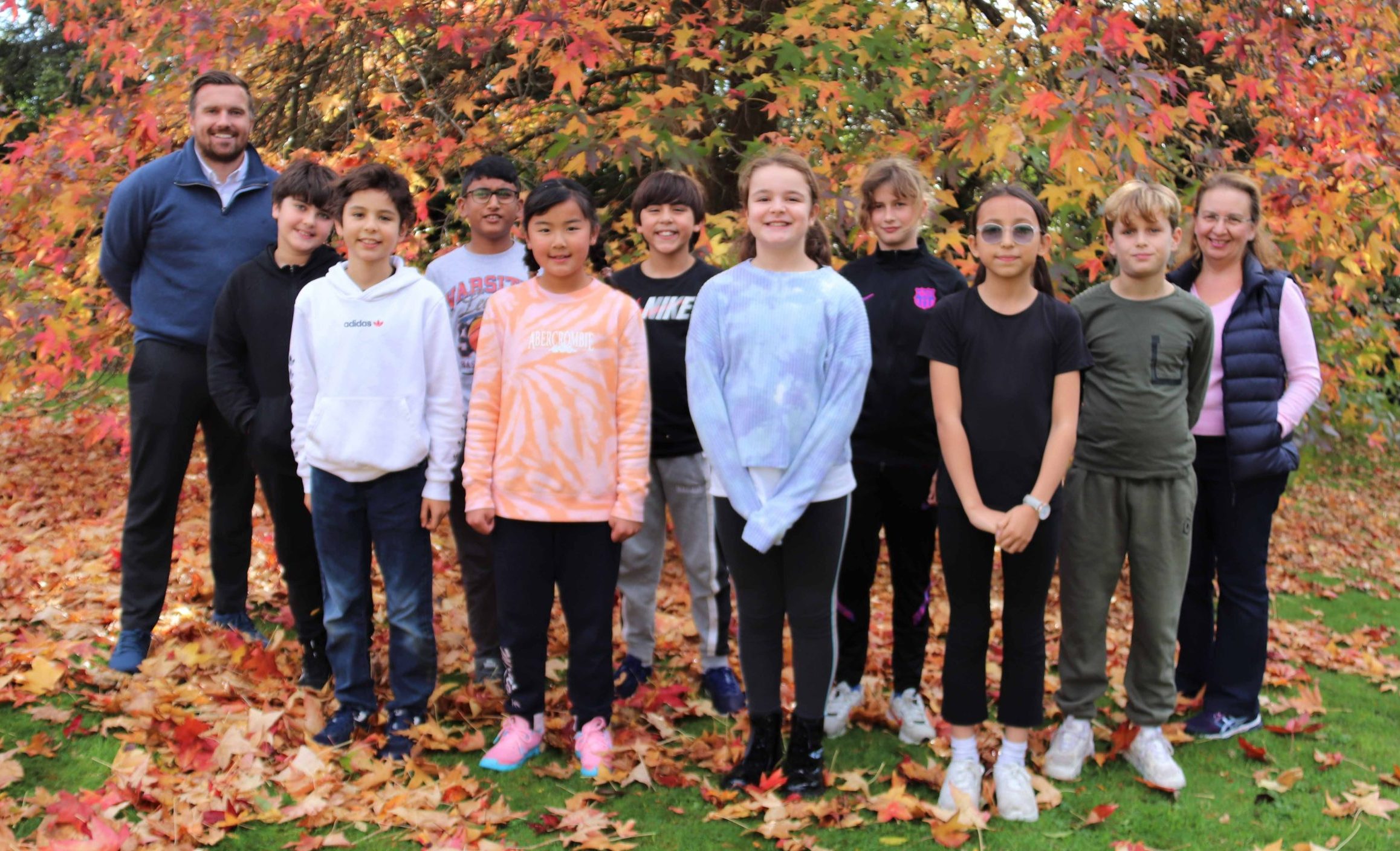
Overview
The course is carefully structured to ensure your child learns the important skills needed to significantly improve their writing in a short space of time. It focuses heavily on the need to plan and prepare properly to achieve a convincing, proficient narrative.
We build on the narrative and descriptive writing skills of our first course, in which children will have developed confidence and skills writing a chronologically structured narrative. In course two, we introduce a more complex narrative structure in which the story opens at the climax and the question ‘how did the characters find themselves in this dilemma?’ is explained in the form of a flashback, before the story reverts to the predicament and is resolved.
While 11+ examinations often test students’ abilities to write creatively in narrative forms (stories), examinations for school entrance at 11+ and 13+ often also assess students’ ability to write and respond in other ways: letters, speeches, leaflets and reports. On this course, we therefore add persuasive and letter writing techniques to our key elements of study. In separate sessions, the discrete and distinctive skills of both formal and informal letter writing structure and language devices are taught so that students develop confidence and ability in letter writing alongside the further extension of their creative, narrative skills.
We also continue to emphasise the importance of developing a good vocabulary with which to express ideas. We include aspects of grammar, spelling and punctuation and devote some time and energy to exploring figurative language and complex sentence constructions that can provide variation and sophistication to the way we phrase our ideas.
Why we think creative writing is so important
- Writing coherently is a fundamental life skill.
- Creative writing is an important part of a child’s emotional development – the ability to express themselves clearly in writing – their feelings, emotions, understanding of their world and to develop their imagination are all good for emotional and mental health and well-being.
- Confident and accomplished writers will also achieve more highly in other areas of the curriculum where essays are required to evidence knowledge and understanding e.g.: history, geography and RE.
- Writing is now teacher-assessed in primary schools and is based on work completed in class during the year. It falls outside of the externally set and marked SATS examinations, so in primary schools, many children are not taught to write in timed, unaided, independent situations under examination pressure.
- Many selective schools examine creative writing skills as part of the 10+, 11+ and Common Entrance admission process.
- It’s fun and children love it (when it’s taught well)!
Course topics
Narrative Element
- Planning a narrative
- Using the plan to inform and define paragraphing
- Using the plan to develop greater cohesion and avoid inconsistencies
- Descriptive, sensory and figurative techniques
- Vocabulary development
- Exploring sophisticated sentence constructions
- Starting with an impact
- Managing tension
- Finishing with a flourish – sophisticated techniques for ending with impact
- Grammar and Punctuation
- The importance of proofreading
- Addressing the mark scheme
Letter Writing Element
- An exploration of the different purposes of letters: persuade, complain, inform, enquire, request
- The essential requirements of a good letter
- Formal letter writing Focus
- Informal letter writing Focus
- Persuasive language techniques (and how to control them)
- Standard English
Grammar, spelling and punctuation
Some common grammar weaknesses are addressed as well as any issues that arise out of our writing during the week. National Curriculum Statutory Spelling Lists are referenced as well as any spelling difficulties or issues that arise from students’ work. Basic and/or more complex punctuation is covered depending on current strengths and weaknesses of participants.
What to expect from our creative writing course
Before the course – meeting your child’s needs
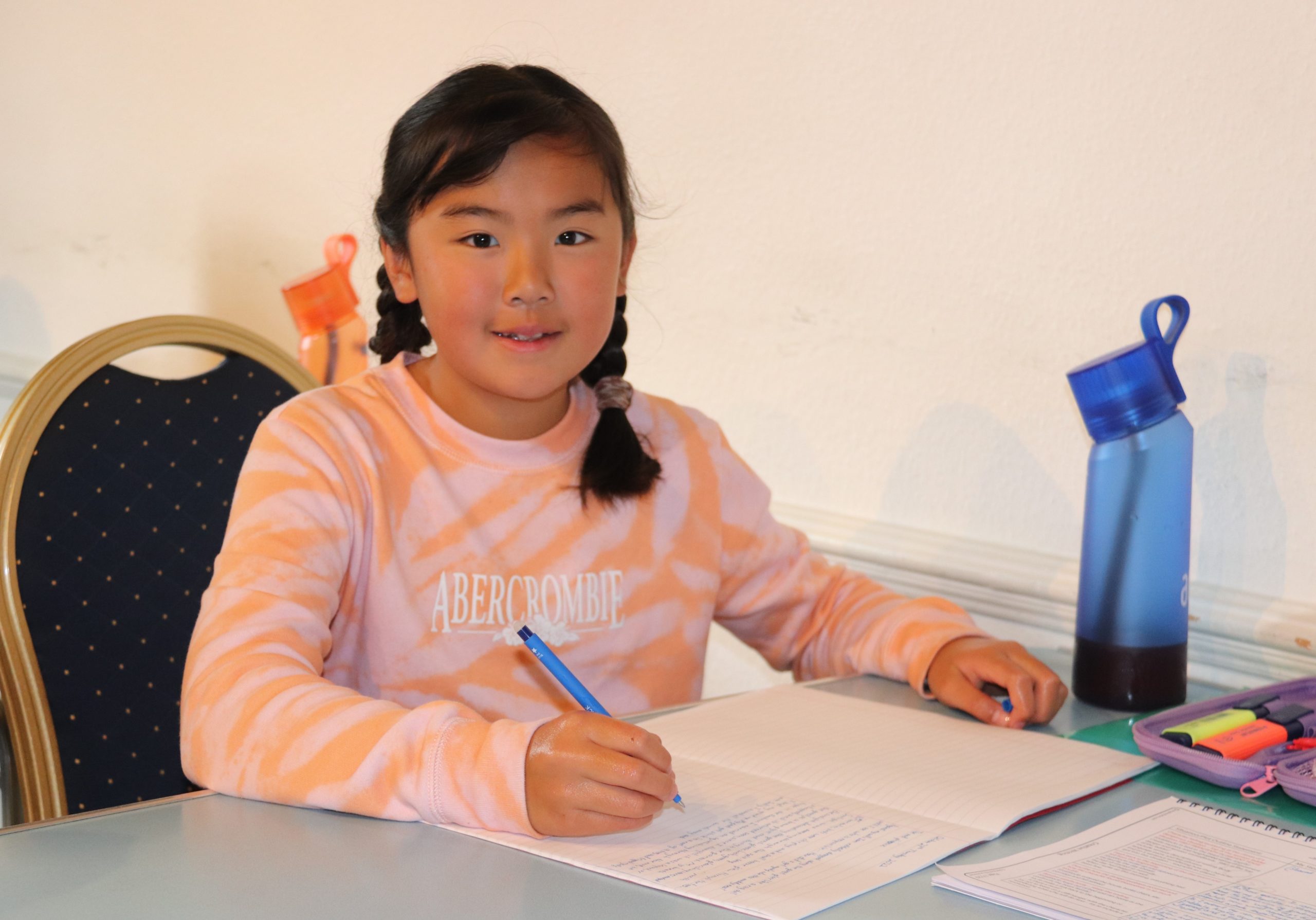
When you complete the booking form, we ask you to tell us about your child’s strengths and weaknesses in English, any mobility, health or educational needs and any tests he or she will be taking.
Participants will be asked to complete a pre-course assessment writing task so that our teachers have a starting point for the course and can address specific weaknesses and areas for development of students attending the course.
Results and detailed individual feedback are provided before the start of the course.
During the course – teaching and learning, revision, exam technique and mock exam
Our experienced, qualified teachers will use a range of teaching approaches (didactic, collaborative, discursive and interactive games) to engage, motivate, instruct and guide your child through the writing process. The groups are small so that everyone can contribute and feel that their work is valued, and for personalised attention and feedback. During independent work, tutors will give individual support. Students receive detailed verbal and written feedback so that they can build further after every piece they write on the course.
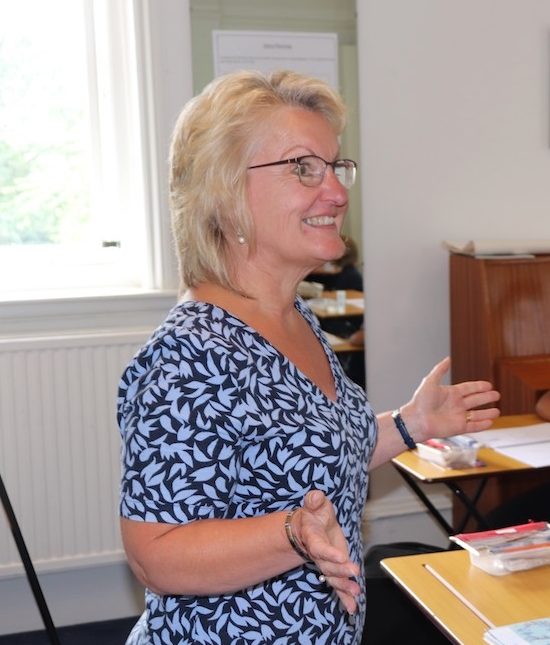
We teach writing, language skills and exam technique. Tutors describe and explain how best to tackle a task to help the students maximise marks in an exam.
During the last day of the course, there will be a formal mock exam. This will be taken under exam conditions. After the exam, the tutor will highlight key areas of merit and targets for improvement so the students can consolidate their learning, learn from their mistakes and continue to build on the skills they have learnt using our course booklet long after the course has ended.
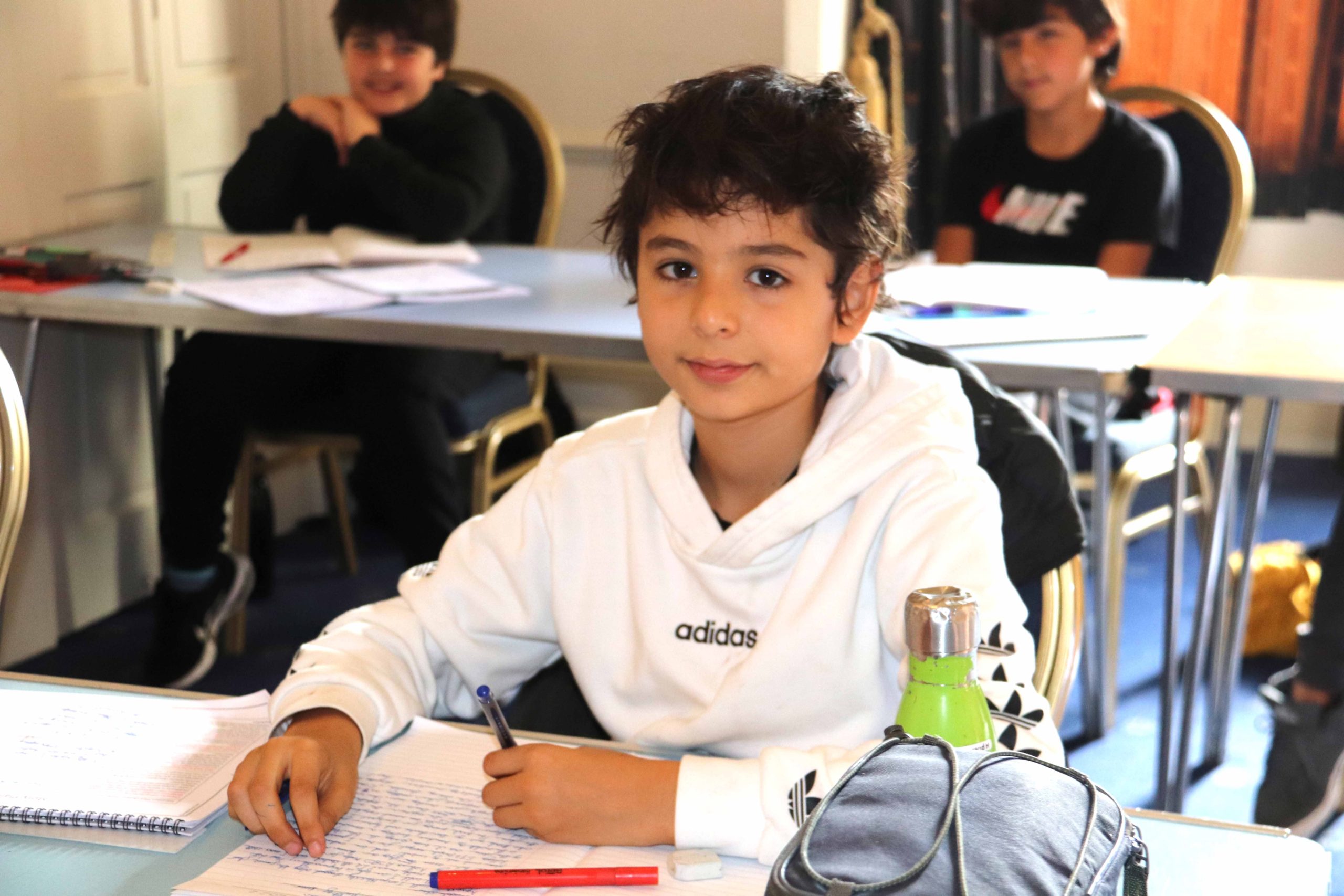
After the course – feedback – report
The mock exam will be marked and either posted or emailed to you with a written report the week after the course. If the tutor suggests that your child needs to do extra work in a particular area, we will offer support. If you feel a one-to-one session would help to complete your child’s preparation for their exams, we will be happy to arrange this.
Group size
Teaching groups will be kept small, with approximately twelve children. This allows time for each child to receive individual support when needed. In addition to the course tutor there may be a second tutor to provide additional support if deemed necessary.
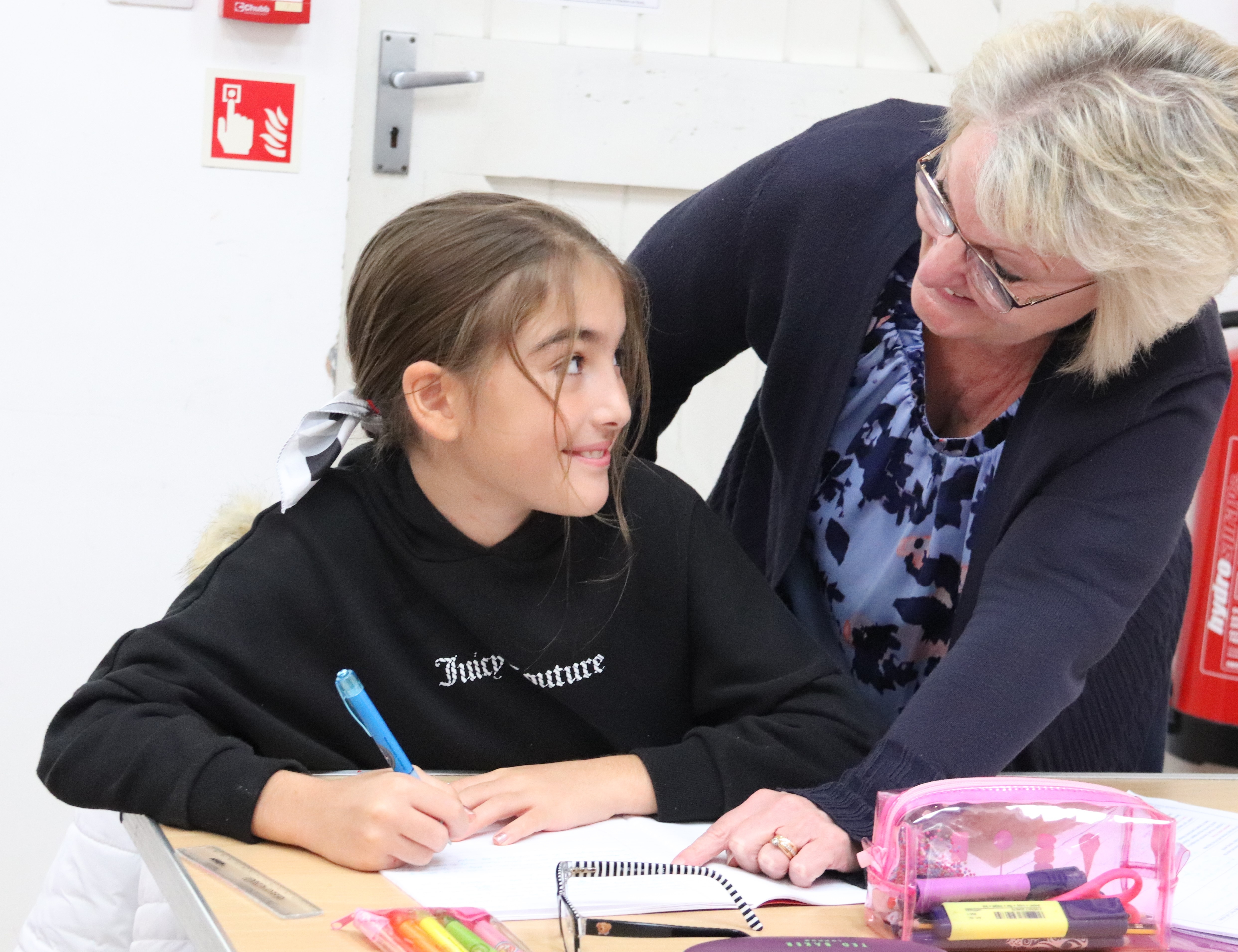
Course tutors
All our tutors have been carefully selected, vetted and have extensive 11-plus and/or secondary English experience. Several of the tutors on this course are current or retired Heads of English Departments in state and/or independent schools. They have excellent references and track records and were also selected by Progress for their caring nature, friendly personalities and clear, but enthusiastic teaching styles.
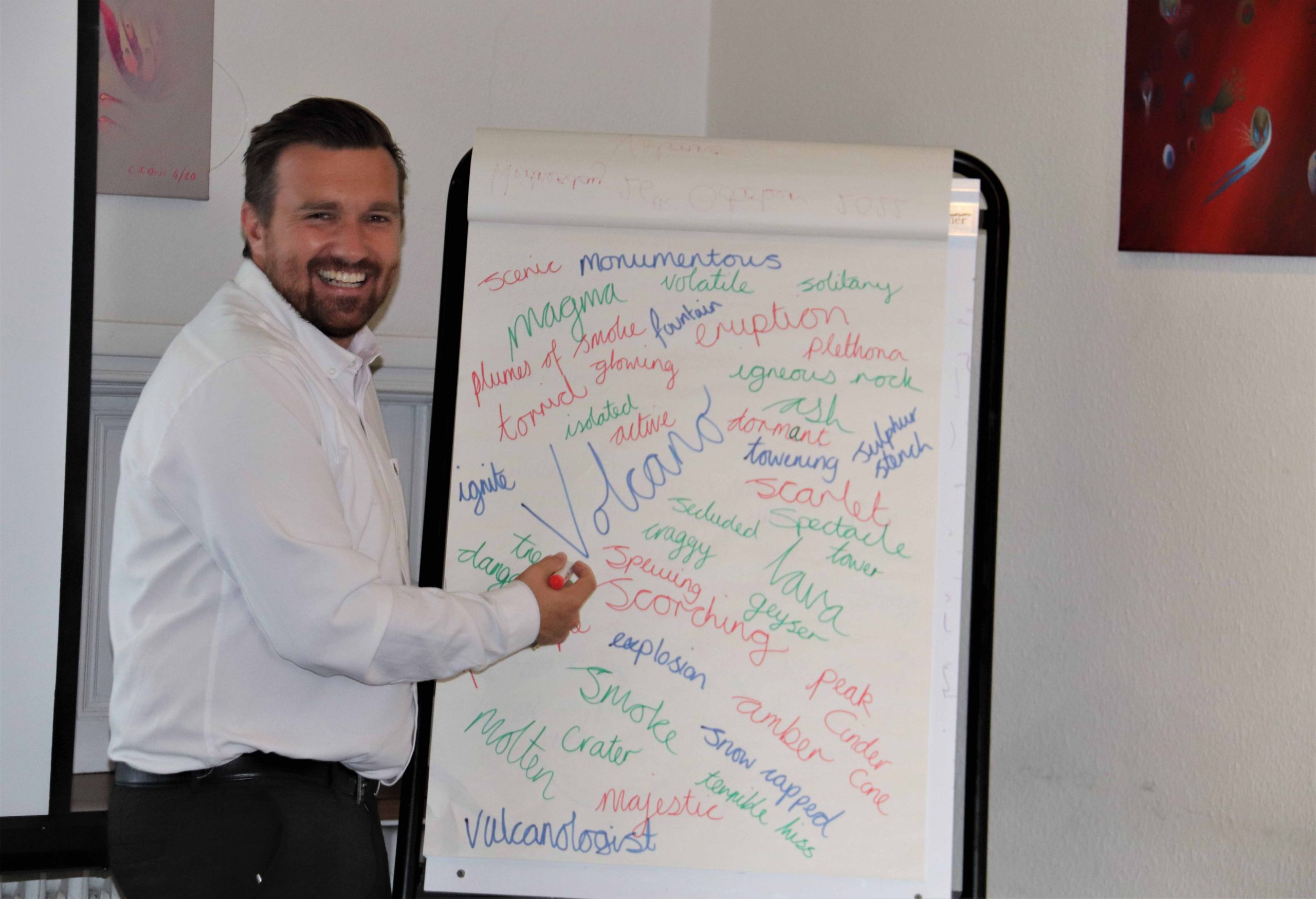
Course sessions
The total study time is 19 hours. Each course runs over four days and is arranged as follows:
| Session | Time |
|---|---|
| 1 | 9.15 - 10.30 |
| Break | |
| 2 | 10.45 - 12.00 |
| Lunch | |
| 3 | 1.00 - 2.15 |
| Break | |
| 4 | 2.30 - 3.30 |
Course venue
Ripley Arts Centre, Bromley Arts Council, 24 Sundridge Avenue, Bromley. BR1 2PX. For full details click venue .
Break periods and lunch
Soft drinks and biscuits will be provided free of charge during break periods. Children must bring a packed lunch.
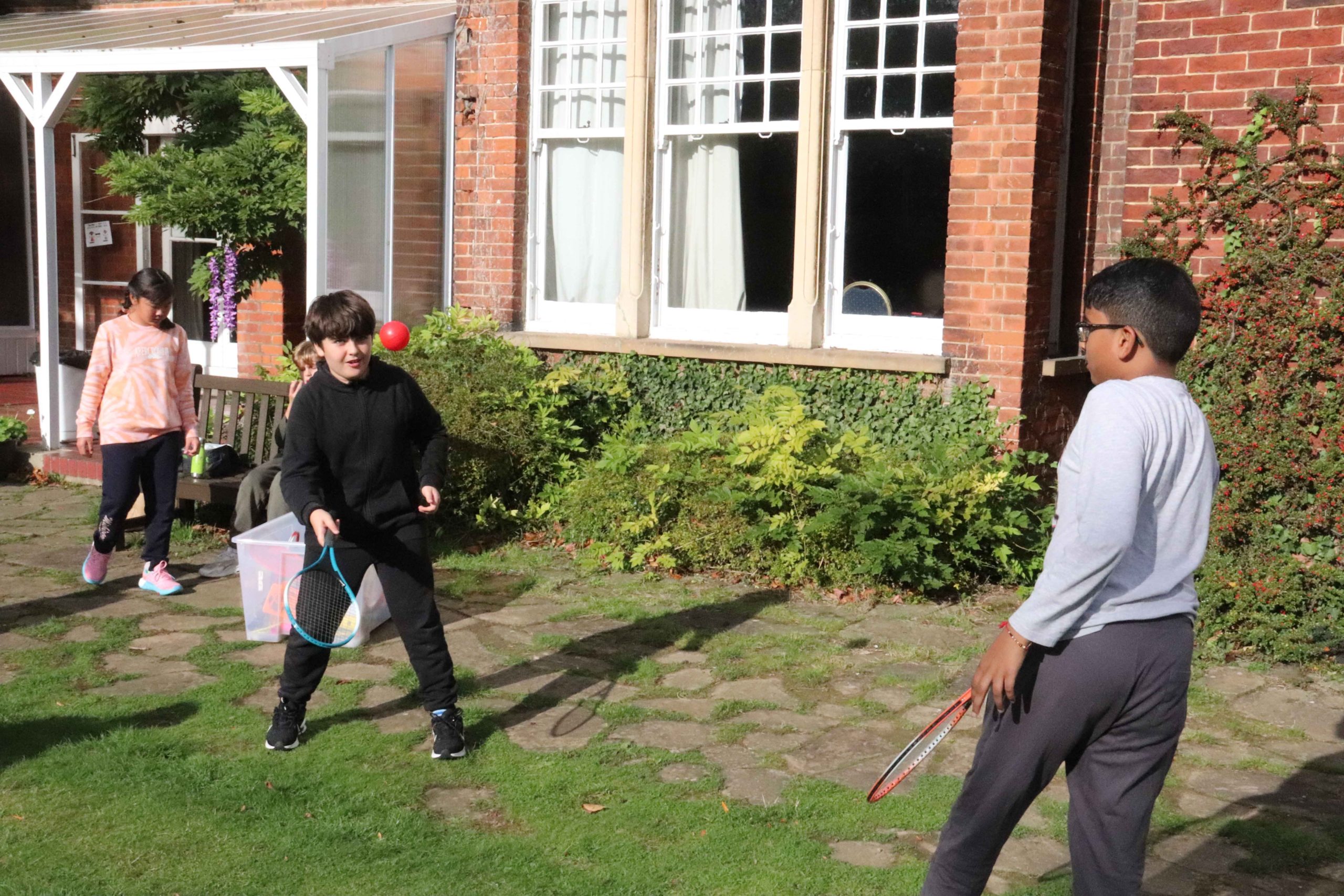
Course fees
The 4-day Creative writing course = £480
Payment method
- We accept payment by bank transfer, credit card, debit card and Paypal™. We do not accept payment by cheque. Please contact us if you have any questions about payment
- Deposits are only accepted if you pay by bank transfer. If you are paying by credit card, debit card or Paypal™, payments must be made in full at the time of booking
Payment policy
- A deposit of £280 must be paid to hold a place if you are not paying in full at the time of booking
- Unless a course becomes unavailable, deposits are non-refundable
- The balance of a course must be paid 3 weeks before the start of the course
- On request, fees can be paid in instalments
Now taking bookings
Please phone or Contact us to check availability before completing the Booking form.
What some of our students have to say…
Lucas, October. 2022
What I enjoyed most was the fact there were new things to learn like the tension ladder and MASTER PROSE . There was also amazing new vocabulary, some you had never heard of before. The Progress Tutors course helps you in every way and improves your writing loads. They also provide toys for playtime and and juice and biscuits. In conclusion it is helpful and is extremely fun.
Jayesh, October. 2022
I enjoyed the freedom of having three breaks. It will be a well deserved break for many children like me.
Dimitra, October. 2022
I specifically enjoyed writing the stories and letters. I loved everything! This is because the teachers inspire you and help you with your questions.
Valentino, October. 2022
I really enjoyed both the teachers and the course. There were 3 exciting breaks and the yummiest of biscuits. There was a lovely work book explaining everything . You will really enjoy it.
Kiki, October. 2022
I understood the format of the course straight away. I really liked the format here, since we have lots of breaks and fresh air so we don’t go crazy. I also really like when everyone is collaborating and the teachers ask us questions. I also enjoy answering the questions.
Benjamin, April. 2022
I have loved how engaging and fun each lesson was. You have taught me to ‘tug on their heartstrings’ in persuasive letters and MASTER PROSE has taught me how to use a triplet. I would say the course is really fun, engaging and helpful for your story writing. To make the course even better you could add the semi-colon descriptive starter to ‘sensational sentences’ and possibly extend the course to five days.
Danel, April. 2022
The Creative writing course has taught me MASTER PROSE, how to use semi colons, how to use fantastic description and amazing vocabulary. I enjoy creative writing more now because you have made creative writing so exciting. If you take part the course will change you forever.
Dimitra, April. 2022
I would say the course is very educational and very much worth it. You learn a load of stuff! It helped me improve my creative writing skills by teaching me new things, helping me when I needed help and telling me new vocab. that I could use other times in school. Thank you! You couldn’t make your course better. There isn’t anything that should be improved! I enjoyed every bit of the course.
Abigail, April. 2022
I enjoyed Master prose the best because it helped me remember all of the figurative language. The course also helped me learn how to write a formal and informal letters and to write more than I used to. I enjoy writing more and I don’t want the course to end.
Aaron, April. 2022
You have helped me to improve by showing me how to write complex sentences and how to tell the difference between informal and formal writing. I enjoy creative writing more now because of the different structures used. The thing I enjoyed most about the course was the feedback because it showed me what I was doing wrong and how to correct it. It was a very educational course.
Lucas, April. 2022
The course has improved my skills because I have learnt to use a lot more descriptive sentences in my writing. I have also learnt to always try and use all of MASTER PROSE and to use semi-colon descriptive sentences more. I have also learnt how to plan a story before I write it. I enjoyed the tension ladder the most because is really affects the story and how it sounds. The is very enjoyable and also amusing outside at break times.
Keira, April. 2022
I really enjoyed how engaging the lessons were. When I came on the course I thought it was going to be quite easy as there were people younger than me but it wasn’t. I really enjoyed it, had lots of fun and I’ve improved greatly .
